NEW presents its Scientific Board!
We are thrilled to welcome the esteemed members of our Scientific Board, each bringing a distinctive blend of expertise and enthusiasm to advance the field of neuroimaging in epilepsy.

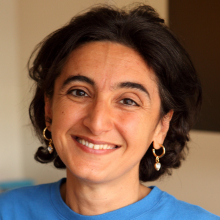 Dr. Neda Bernasconi is a neuroscientist specialized in Neuroimaging of Epilepsy. Her work demonstrates that combining multimodal high-field MRI with statistical modeling provides a comprehensive view of the biological basis of epilepsy. Using computational neuroanatomy, her team furthers the understanding of various syndromes, particularly those involving the limbic system, through the design and application of methods aimed at assessing the impact of seizures on brain plasticity, connectivity, and cognition.
Dr. Neda Bernasconi is a neuroscientist specialized in Neuroimaging of Epilepsy. Her work demonstrates that combining multimodal high-field MRI with statistical modeling provides a comprehensive view of the biological basis of epilepsy. Using computational neuroanatomy, her team furthers the understanding of various syndromes, particularly those involving the limbic system, through the design and application of methods aimed at assessing the impact of seizures on brain plasticity, connectivity, and cognition.
 Dr. Boris Bernhardt is a cognitive scientist with expertise in neuroimaging, network neuroscience, and statistical learning. His group develops integrative analytics to study large-scale brain organization, connectivity, and neurodevelopment. One focus is the study of individual differences in connectome architecture in developing and adult populations, and the relation to variability in high-level cognition and socio-affective competences. His team studies healthy and diseased populations, notably drug-resistant epilepsy and autism spectrum disorders, two common and persistent conditions of early onset.
Dr. Boris Bernhardt is a cognitive scientist with expertise in neuroimaging, network neuroscience, and statistical learning. His group develops integrative analytics to study large-scale brain organization, connectivity, and neurodevelopment. One focus is the study of individual differences in connectome architecture in developing and adult populations, and the relation to variability in high-level cognition and socio-affective competences. His team studies healthy and diseased populations, notably drug-resistant epilepsy and autism spectrum disorders, two common and persistent conditions of early onset.
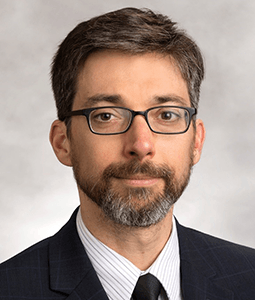 Dr. Leonardo Bonilha is the Senior Associate Dean for Research at the University of South Carolina School of Medicine Columbia. His research focuses on language recovery for patients with aphasia as well as outcomes of epilepsy treatment.
Dr. Leonardo Bonilha is the Senior Associate Dean for Research at the University of South Carolina School of Medicine Columbia. His research focuses on language recovery for patients with aphasia as well as outcomes of epilepsy treatment.

 Dr. Luis Concha is a researcher interested in using quantitative MRI, particularly (but not limited to) diffusion-weighted MRI, for the study of neurological disorders, with special interest in epilepsy. Along with the great people in his lab, they try to understand what causes some specific brain lesions to be epileptogenic, how this process evolves over time, and how it affects cognitive abilities.
Dr. Luis Concha is a researcher interested in using quantitative MRI, particularly (but not limited to) diffusion-weighted MRI, for the study of neurological disorders, with special interest in epilepsy. Along with the great people in his lab, they try to understand what causes some specific brain lesions to be epileptogenic, how this process evolves over time, and how it affects cognitive abilities.
 Dr. Kathryn Davis serves as medical director of Penn’s Epilepsy Monitoring Unit and Epilepsy Surgical Program. In addition, her research lab focuses on advancing the fields of invasive neurophysiology and neuroimaging to better localize epileptic networks in medication refractory epilepsy patients. It is her hope that improving localization will enable epileptologists to better assign individual patients to the most efficacious therapy, for example, seizure control devices, resective surgery, or continued medical management.
Dr. Kathryn Davis serves as medical director of Penn’s Epilepsy Monitoring Unit and Epilepsy Surgical Program. In addition, her research lab focuses on advancing the fields of invasive neurophysiology and neuroimaging to better localize epileptic networks in medication refractory epilepsy patients. It is her hope that improving localization will enable epileptologists to better assign individual patients to the most efficacious therapy, for example, seizure control devices, resective surgery, or continued medical management.
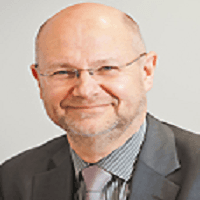 Dr. John Duncan is a consultant neurologist, with a particular interest in epilepsy, to the National Hospital for Neurology and Neurosurgery, Queen Square, and the National Society for Epilepsy. In this role, he has approximately 2,000 patients under his clinical review. His research interests include epilepsy and brain imaging.
Dr. John Duncan is a consultant neurologist, with a particular interest in epilepsy, to the National Hospital for Neurology and Neurosurgery, Queen Square, and the National Society for Epilepsy. In this role, he has approximately 2,000 patients under his clinical review. His research interests include epilepsy and brain imaging.
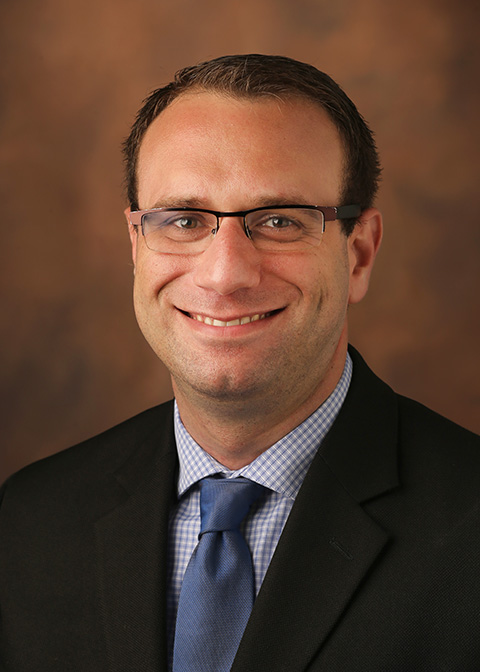 Dr. Dario Englot’s clinical interests include epilepsy, neuromodulation, movement disorders, pain disorders, and general neurosurgery. He also leads an active research laboratory studying brain networks in neurological disorders using neuroimaging and electrophysiology, with a particular focus in epilepsy. Investigating brain network abnormalities in epilepsy will help us understand the behavioral and cognitive effects of seizures over time, and may lead to better treatments, including surgical procedures and neuromodulation. His current research projects include functional magnetic resonance imaging (fMRI), diffusion tensor imaging (DTI), and intracranial electroencephalography (iEEG) studies in epilepsy and other neurological disorders.
Dr. Dario Englot’s clinical interests include epilepsy, neuromodulation, movement disorders, pain disorders, and general neurosurgery. He also leads an active research laboratory studying brain networks in neurological disorders using neuroimaging and electrophysiology, with a particular focus in epilepsy. Investigating brain network abnormalities in epilepsy will help us understand the behavioral and cognitive effects of seizures over time, and may lead to better treatments, including surgical procedures and neuromodulation. His current research projects include functional magnetic resonance imaging (fMRI), diffusion tensor imaging (DTI), and intracranial electroencephalography (iEEG) studies in epilepsy and other neurological disorders.
 Dr. Paolo Federico’s research activities focus on functional and structural imaging in epilepsy. His imaging studies include the study of cortical and subcortical circuits underlying the generation of interictal discharges, functional MRI analysis of the pre-ictal state, language and motor reorganization in focal epilepsy, and seizure-related structural brain changes. He also has an interest in advanced EEG analytical techniques, including the study of high frequency oscillations in humans and animal models of epilepsy.
Dr. Paolo Federico’s research activities focus on functional and structural imaging in epilepsy. His imaging studies include the study of cortical and subcortical circuits underlying the generation of interictal discharges, functional MRI analysis of the pre-ictal state, language and motor reorganization in focal epilepsy, and seizure-related structural brain changes. He also has an interest in advanced EEG analytical techniques, including the study of high frequency oscillations in humans and animal models of epilepsy.
 Dr. William Gaillard is chief of the Divisions of Child Neurology and of Epilepsy and Neurophysiology. He is director of the Comprehensive Pediatric Epilepsy Program — one of the leading multidisciplinary pediatric epilepsy programs in the country. His innovative research utilizes advanced structural and functional imaging to examine the effects of epilepsy on brain structure and function. His pioneering work with functional imaging has changed clinical practice for patients with epilepsy, made important technical contributions to structural and functional imaging methods, and provided fundamental scientific insights on the biology of brain plasticity. Ultimately, the goal of his research is to improve the outcomes and lives of children with epilepsy.
Dr. William Gaillard is chief of the Divisions of Child Neurology and of Epilepsy and Neurophysiology. He is director of the Comprehensive Pediatric Epilepsy Program — one of the leading multidisciplinary pediatric epilepsy programs in the country. His innovative research utilizes advanced structural and functional imaging to examine the effects of epilepsy on brain structure and function. His pioneering work with functional imaging has changed clinical practice for patients with epilepsy, made important technical contributions to structural and functional imaging methods, and provided fundamental scientific insights on the biology of brain plasticity. Ultimately, the goal of his research is to improve the outcomes and lives of children with epilepsy.
 Dr. R. Edward “Ed” Hogan is a professor in the Department of Neurology at Washington University in St. Louis, and the Director of the Comprehensive Epilepsy Center at Barnes Jewish Hospital. His research interests are in the pharmacology and clinical use of antiepileptic medications, and neuro-imaging changes in patients with epileptic seizures. He is involved in clinical trials in epilepsy, and neuro-imaging studies of single photon emission computed tomography (SPECT), and functional/structural MRI. Goals of his clinical and research efforts are to both provide and improve medical and surgical treatment of epileptic seizures.
Dr. R. Edward “Ed” Hogan is a professor in the Department of Neurology at Washington University in St. Louis, and the Director of the Comprehensive Epilepsy Center at Barnes Jewish Hospital. His research interests are in the pharmacology and clinical use of antiepileptic medications, and neuro-imaging changes in patients with epileptic seizures. He is involved in clinical trials in epilepsy, and neuro-imaging studies of single photon emission computed tomography (SPECT), and functional/structural MRI. Goals of his clinical and research efforts are to both provide and improve medical and surgical treatment of epileptic seizures.
Dr. Simon Keller is Professor of neuroimaging and neuroscience in the Institute of Systems, Molecular and Integrative Biology (ISMIB), University of Liverpool. His main research interests are the use of advanced quantitative neuroimaging techniques, mainly magnetic resonance imaging, to understand aberrant brain mechanisms in neurological disorders, help improve imaging diagnostic accuracy and identify reliable imaging prognostic markers of medical and neurosurgical treatment. Epilepsy in particular is of primary interest. Dr. Keller is the Director of the Brain Research using Advanced Imaging in Neurology (BRAIN) lab.
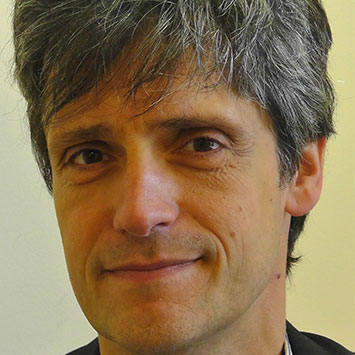 Dr. Matthias Koepp is Professor of Neurology at UCL Queen Square Institute of Neurology, Consultant Neurologist at the UCLH National Hospital for Neurology and Neurosurgery, and Clinical Lead of the MRI-Unit at the Epilepsy Society. He runs specialist epilepsy clinics, with a particular focus on people with epilepsy and associated co-morbidities, in particular Learning Disabilities. His research interests include difficult-to-treat epilepsy, co-morbidities, functional, molecular and structural imaging in epilepsy.
Dr. Matthias Koepp is Professor of Neurology at UCL Queen Square Institute of Neurology, Consultant Neurologist at the UCLH National Hospital for Neurology and Neurosurgery, and Clinical Lead of the MRI-Unit at the Epilepsy Society. He runs specialist epilepsy clinics, with a particular focus on people with epilepsy and associated co-morbidities, in particular Learning Disabilities. His research interests include difficult-to-treat epilepsy, co-morbidities, functional, molecular and structural imaging in epilepsy.
 Dr. Carrie McDonald is a Professor of Radiation Medicine & Applied Sciences and Psychiatry at UCSD and a board-certified clinical neuropsychologist. Dr. McDonald has over 15 years of experience in biomedical imaging, neuropsychological research and clinical care of patients with epilepsy, brain tumors, and dementia. She directs the Neuropsychology Clinic at the UCSD Moores Cancer Center and she is a member of the UCSD Epilepsy Patient Management Team. Dr. McDonald is the Principal Investigator on three NIH/NINDS R01 grants that use quantitative Neuroimaging (structural MRI, functional MRI, diffusion imaging and ASL) and cognitive testing to predict cognitive outcomes in patients undergoing neurosurgical procedures (surgical resection, laser ablation, neuromodulation) and radiation treatment.
Dr. Carrie McDonald is a Professor of Radiation Medicine & Applied Sciences and Psychiatry at UCSD and a board-certified clinical neuropsychologist. Dr. McDonald has over 15 years of experience in biomedical imaging, neuropsychological research and clinical care of patients with epilepsy, brain tumors, and dementia. She directs the Neuropsychology Clinic at the UCSD Moores Cancer Center and she is a member of the UCSD Epilepsy Patient Management Team. Dr. McDonald is the Principal Investigator on three NIH/NINDS R01 grants that use quantitative Neuroimaging (structural MRI, functional MRI, diffusion imaging and ASL) and cognitive testing to predict cognitive outcomes in patients undergoing neurosurgical procedures (surgical resection, laser ablation, neuromodulation) and radiation treatment.
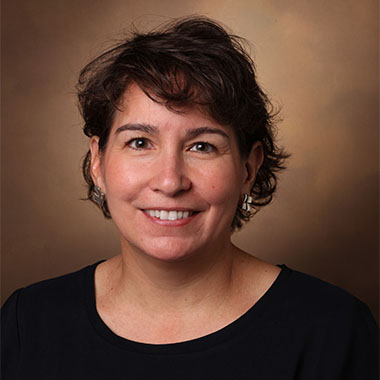 Dr. Victoria Morgan is an Associate Professor of Radiology & Radiological Sciences and Biomedical Engineering. Dr. Morgan is currently involved in several research projects involving the use of functional MRI (fMRI) to quantify the effects of epilepsy on the brain. Specifically, they are searching for ways to use fMRI to localize the seizure focus and related seizure propagation networks in temporal lobe epilepsy. In addition, they are attempting to relate cognitive and functional changes associated with the disease to the functional network alterations. Other projects include the application of multimodal MRI to concussion, and the investigation of improved functional connectivity techniques.
Dr. Victoria Morgan is an Associate Professor of Radiology & Radiological Sciences and Biomedical Engineering. Dr. Morgan is currently involved in several research projects involving the use of functional MRI (fMRI) to quantify the effects of epilepsy on the brain. Specifically, they are searching for ways to use fMRI to localize the seizure focus and related seizure propagation networks in temporal lobe epilepsy. In addition, they are attempting to relate cognitive and functional changes associated with the disease to the functional network alterations. Other projects include the application of multimodal MRI to concussion, and the investigation of improved functional connectivity techniques.
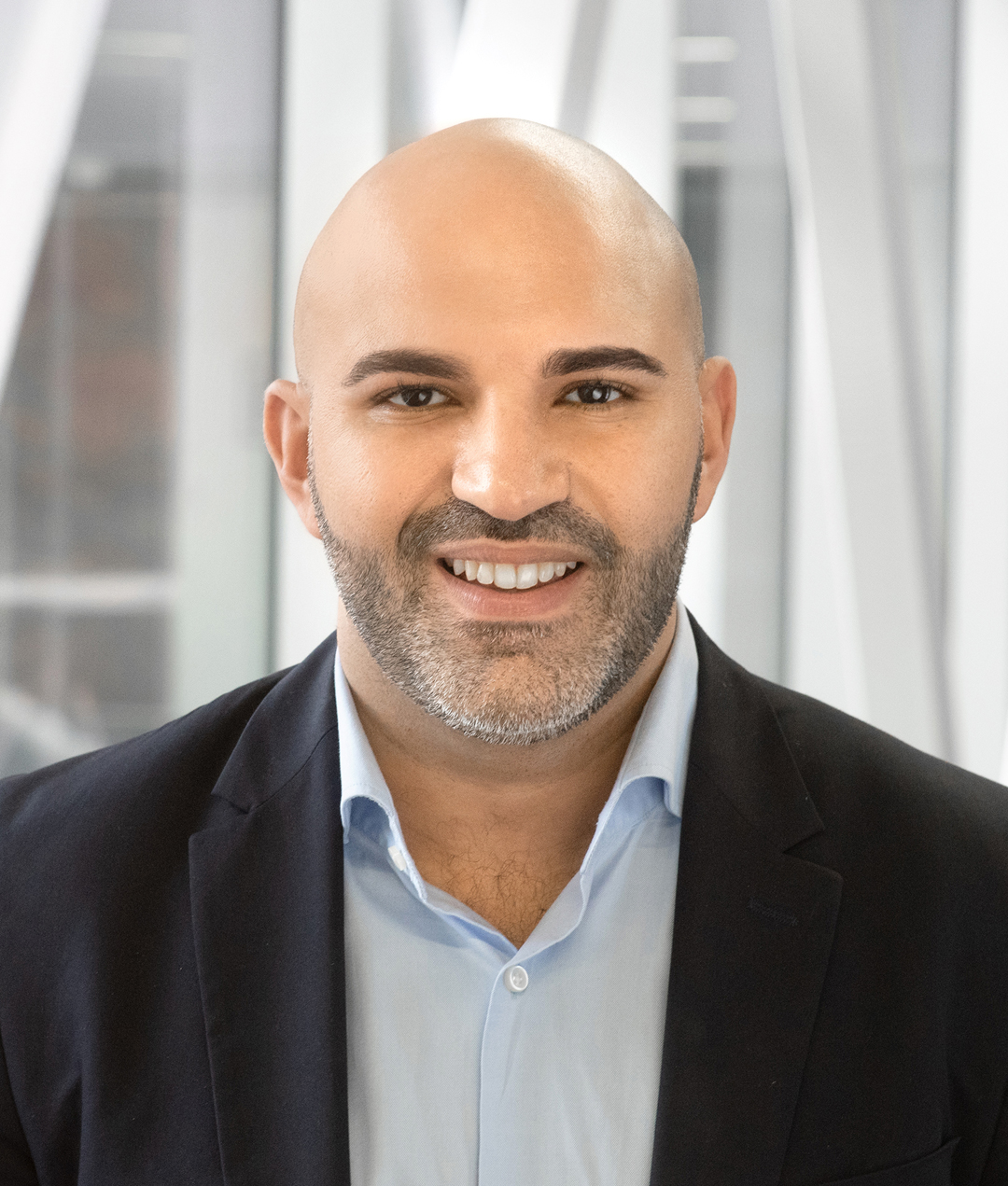 Dr. Sami Obaid is a Neurosurgeon and a Clinical Assistant Professor in the Department of Surgery at Université de Montréal. His research interests focus on developing novel neuroimaging techniques to characterize epileptic networks and improve the outcome of surgery for epilepsy.His research interests include novel neuroimaging techniques to characterize epileptic networks and improve the outcome of surgery for epilepsy.
Dr. Sami Obaid is a Neurosurgeon and a Clinical Assistant Professor in the Department of Surgery at Université de Montréal. His research interests focus on developing novel neuroimaging techniques to characterize epileptic networks and improve the outcome of surgery for epilepsy.His research interests include novel neuroimaging techniques to characterize epileptic networks and improve the outcome of surgery for epilepsy.

 Dr. Leigh Sepeta has academic appointments at The George Washington University School of Medicine & Health Sciences as Assistant Professor of Psychiatry and Behavioral Sciences and Assistant Professor of Pediatrics. Her work has spanned both basic research and clinical practice, with a focus on functional magnetic resonance imaging (fMRI) for language and memory mapping in epilepsy. From her extensive clinical and research experience in pediatric and adult neuropsychology, Dr. Sepeta intents on pursuing the research and clinical study of neurological disorders. She is increasingly interested in following a multidisciplinary approach to studying the neurobiological basis of cognitive networks, memory in particular. Her research program aims to provide important insights regarding development of executive functioning and memory, and their neural underpinnings.
Dr. Leigh Sepeta has academic appointments at The George Washington University School of Medicine & Health Sciences as Assistant Professor of Psychiatry and Behavioral Sciences and Assistant Professor of Pediatrics. Her work has spanned both basic research and clinical practice, with a focus on functional magnetic resonance imaging (fMRI) for language and memory mapping in epilepsy. From her extensive clinical and research experience in pediatric and adult neuropsychology, Dr. Sepeta intents on pursuing the research and clinical study of neurological disorders. She is increasingly interested in following a multidisciplinary approach to studying the neurobiological basis of cognitive networks, memory in particular. Her research program aims to provide important insights regarding development of executive functioning and memory, and their neural underpinnings.
 Dr. Meneka Sidhu is a consultant neurologist and honorary senior lecturer at the National Hospital for Neurology and Neurosurgery, UCLH Hospitals NHS Foundation Trust and UCL/Institute of Neurology. Her research interests include structural and functional imaging in people with refractory epilepsy udergoing surgical evauation. The traslational aim of this is to investigate brain function before epilepsy surgery and predict cognitive outcome following surgery. She runs a general neurology clinic and specialist epilepsy clinics at the National Hospital for Neurology and Neurosurgery and the Chalfont Centre for Epilepsy. She is responsible for in-patients in the Sir William Gowers Assessment and Treatment unit at the Chafont Centre for Epilepsy.
Dr. Meneka Sidhu is a consultant neurologist and honorary senior lecturer at the National Hospital for Neurology and Neurosurgery, UCLH Hospitals NHS Foundation Trust and UCL/Institute of Neurology. Her research interests include structural and functional imaging in people with refractory epilepsy udergoing surgical evauation. The traslational aim of this is to investigate brain function before epilepsy surgery and predict cognitive outcome following surgery. She runs a general neurology clinic and specialist epilepsy clinics at the National Hospital for Neurology and Neurosurgery and the Chalfont Centre for Epilepsy. She is responsible for in-patients in the Sir William Gowers Assessment and Treatment unit at the Chafont Centre for Epilepsy.
 Dr. Britta Wandschneider is a Consultant Neurologist and Researcher at Epilepsy Imaging Group Queen Square Institute of Neurology. Her research interests include epilepsy and brain imaging.
Dr. Britta Wandschneider is a Consultant Neurologist and Researcher at Epilepsy Imaging Group Queen Square Institute of Neurology. Her research interests include epilepsy and brain imaging.
Dr. Irene Wang is Research Director and Staff Scientist at Cleveland Clinic’s Epilepsy Center, Joint Staff with the Department of Biomedical Engineering, Lerner Research Institute, Cleveland Clinic, and an Associate Professor of Neurology at Cleveland Clinic’s Lerner College of Medicine. The focus of Dr. Wang’s research is to advance surgical treatment of MRI-negative (nonlesional) epilepsy patients through novel imaging and neurophysiology techniques. Her specific research interests are: epilepsy imaging (3T and 7T structural MRI, MR fingerprinting); MRI post-processing (voxel-based and surface-based methods); as well as integration of multiple modalities used in pre-surgical evaluation.